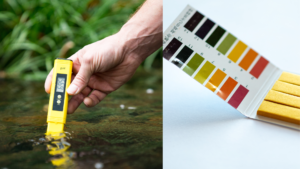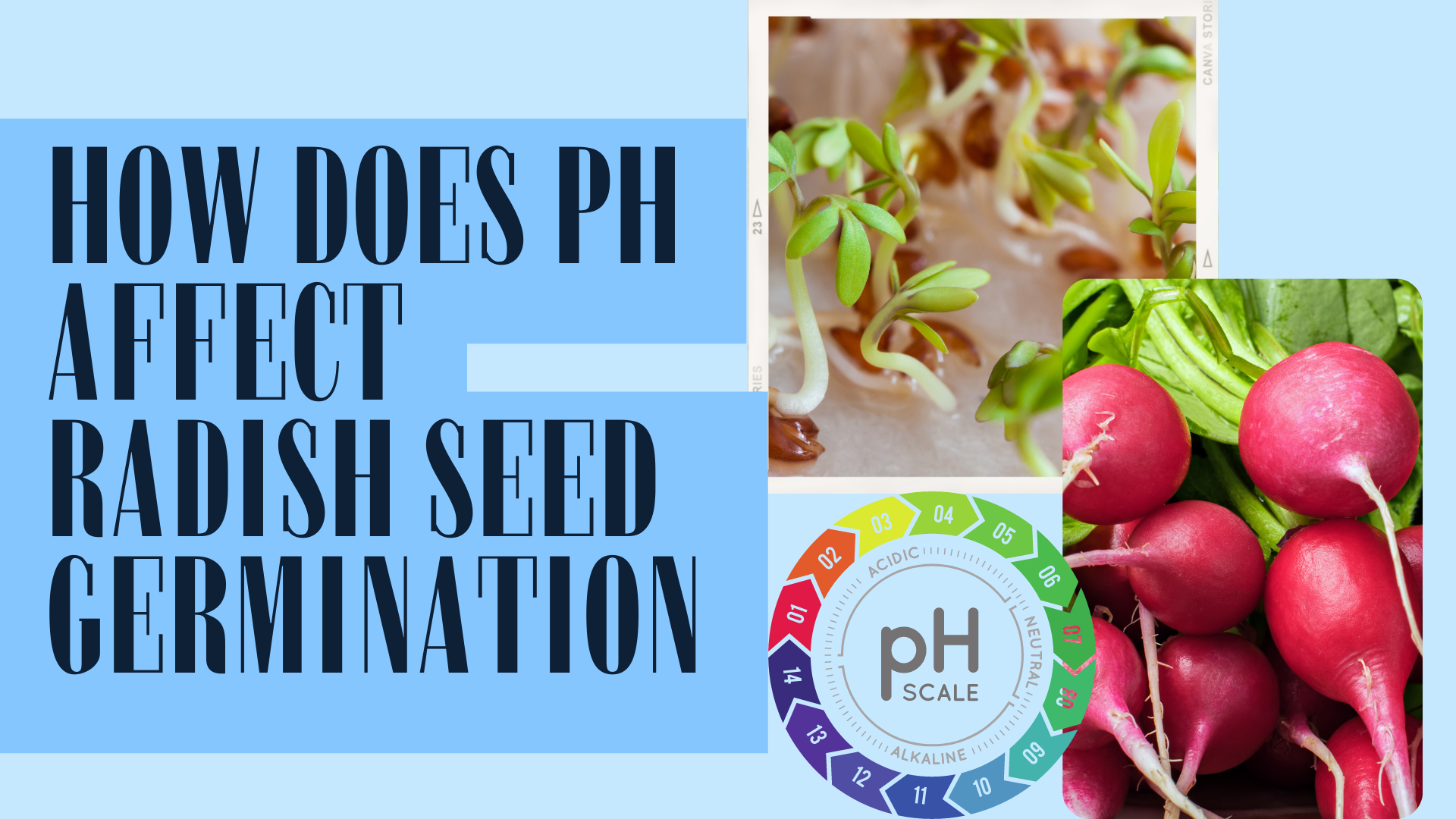Radish seed germination is a critical phase in the growth of radishes. Ph levels in the soil affect radish seed germination and can have a profound effect on the success of a crop. Soil ph varies depending on location and can be affected by factors like pH, organic matter, and clay content.
Radish seeds can be planted in a variety of soil types, including sandy soils. They are also very tolerant of drought, but they do best in loose, well-drained soil.
Radish is a root vegetable that is high in Vitamin C and other essential nutrients. Radishes are a cool-season crop that can be planted in early spring or late fall. Cool-season crops like radishes need to be planted in soil that is warm enough to germinate the seed, but not so warm that the plants will get too hot.
Germination: Germination is the process of a seed growing into a plant. The pH of the soil is a major factor that affects the germination of seeds. The ideal pH range for most plants is between 6 and 7. Several environmental factors can affect the germination of seeds. The most important of these are pH, temperature, moisture, and light. Soil pH affects the availability of nutrients to the seed. Soil pH can affect the ability of a seed to germinate.
How Does ph Affect Radish Seed Germination?
Ph affects radish seed germination in a variety of ways. For example, high levels of ph can inhibit the growth of radish roots and stunt their development. This can lead to problems with germination and subsequent plant growth. Conversely, low levels of ph can speed up the germination process, leading to more vigorous plants. Additionally, acidic soils are more conducive to the growth of Phytophthora infestans, a fungus that can damage radish seedlings.
What is the Ideal pH for Radish Seed Germination?
”Radish plants show optimal growth in soils with a pH between 6 and 7”
Radishes will flourish in soils that are mildly acidic to neutral. Radish seeds have a high percentage of germination in pHs 4-12 and a very low percentage of germination in pH 1-3 and pH 13-14. This shows that radish seed germination is pH-sensitive.
Radishes can grow in the majority of soils, as long as it is well-drained and has a pH between 6 and 7.7, but they will still germinate in soils with a pH as low as 1 or as high as 12.
How to Measure the pH?

The best way to determine the pH level is to use a pH meter. You can also use pH test strips, which are available at most gardening stores.
How Does Low pH Affect Seed Germination?
Low soil pH can inhibit seed germination by affecting the availability of essential nutrients and water to the seeds. Acidic soils are low in calcium, magnesium, potassium, and other essential nutrients needed for seed germination. These nutrients are necessary for cell division, root growth, and other developmental processes. Acidic soils also have a high amount of aluminum, which can be toxic to plants.
How to Correct the Low pH that Affects Seed Germination

There are a few ways to correct low pH in soil for germinating seeds. One way is to use an alkaline material, such as limestone, to raise the pH of the soil. This method is simple and effective, but it can take a while for the limestone to dissolve and raise the pH.
A quicker method is to use an alkaline solution, such as baking soda or ammonia, to increase the pH of the soil. Be sure to use caution when using these methods, as they can be harmful if not used properly. Another way to correct low pH is by using peat moss. Peat moss can help to increase the acidity of the soil, which will help to raise the pH.
How Does low pH Affect Seed Germination?
When it comes to germination, the pH of the soil is a critical factor. A pH that is too high or too low can prevent seeds from germinating. The ideal pH range for most plants is 6.0-7.5. When the pH is outside of this range, it can affect the plant’s ability to take up nutrients and minerals from the soil.
High pH can hurt seed germination for a few reasons. One reason is that at high pH levels, calcium and magnesium become less available to plants. These minerals are essential for seed germination and proper plant growth. Another reason is that high pH levels can create an environment that is unfavorable for microorganisms in the soil. These microorganisms are important for breaking down organic matter in the soil and making nutrients available to plants.
How to Correct the High pH that Affects Seed Germination?
The high pH levels in soil can often cause problems for plants, including inhibiting seed germination. Fortunately, there are several ways to correct the pH level and help ensure successful germination. One way is to add organic matter to the soil, as this will help to acidify it. Another option is to use a commercial acidifying agent, which can be found at most garden centers. If neither of these solutions is feasible or effective, you can also try planting seeds in pots or containers and then transferring them to the garden once they have germinated. By using one of these methods, you can help ensure that your plants will get off to a healthy start.
How the Level of Phosphorus in the Soil Affects the Germination of Radish Seeds.

the germination of radish seeds is influenced by the level of phosphorus in the soil.
Phosphorus is an essential nutrient for plant growth and can be found in the soil in tiny amounts. Phosphorus is an essential element for plant growth and development. It is found in the soil, water, and air. Phosphorus helps seeds to germinate and grow. Too much phosphorus can cause toxicity problems for plants; however, too little phosphorus can also lead to stunted or ruined plants. To determine how much phosphorus is needed for a particular crop, farmers often test the soil’s phosphate content.
It is found in the soil, water, and air. Phosphorus helps seeds to germinate and grow. Too much phosphorus can cause toxicity problems for plants; however, too little phosphorus can also lead to stunted or ruined plants.
Radish is a root vegetable that is high in Vitamin C and other essential nutrients. Radishes are a cool-season crop that can be planted in early spring or late fall. Cool-season crops like radishes need to be planted in soil that is warm enough to germinate the seed, but not so warm that the plants will get too hot. Phosphorus is an important nutrient for growing radishes and other cool-season crops. The amount of phosphorus present in the soil affects how well the radish seed will germinate and grow.
Conclusion
One of the most important steps in starting a radish crop is ensuring successful radish seed germination. Unfortunately, many factors can affect whether or not a radish seed will germinate. Weather conditions, pH levels, and soil type are just a few of the things that can influence germination success. Ph levels can be important in controlling the amount of water radish seeds absorb, which can affect their vigor and growth.
In conclusion, the ph of the surrounding soil affects how well radish seeds germinate. The ideal ph range for radish seed germination is 6.0-7.5. If the soil is too acidic (below 6.0), the radish seeds will not be able to germinate. By keeping this in mind, gardeners can take steps to improve the germination rate of their radish crops by amending the soil accordingly.

